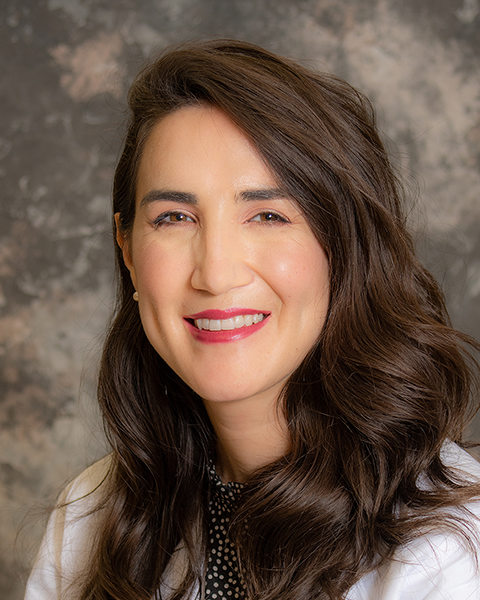
Gastrointestinal Cancers Develop Throughout the Digestive System
Stomach Cancer Treatment
Gastrointestinal (GI) cancers can affect any of the organs in the digestive system. These organs work together to get nutrients from food into the body and remove waste. Some types of GI cancers are more common in men and older adults. Lifestyle factors, such as smoking, drinking alcohol, and eating an unhealthy diet, can also increase risk.
What are the Types of Gastrointestinal Cancer?
Most types of GI cancer do not have screening tests to diagnose them in people without symptoms. The most common types of GI cancer are:
Esophageal cancer. Cancer of the esophagus, the tube that carries food from the throat to the stomach, does not usually cause symptoms in the early stages. Later, it may cause painful or difficult swallowing, weight loss, a hoarse voice, or coughing.
Stomach cancer (also called gastric cancer). Stomach cancer symptoms in males are the same as in females. These may include indigestion and stomach discomfort in the early stages. More advanced stomach cancer can cause symptoms such as loss of appetite, vomiting, and blood in the stool.
Colorectal cancer is the only type of GI cancer that has a screening test to look for cancer in people with no symptoms. There are different types of colorectal screening tests, including blood tests, stool tests, and procedural tests such as colonoscopy or flexible sigmoidoscopy. Colonoscopies are considered the “gold standard” because they not only detect polyps that can grow into cancer but those polyps can be removed during the colonoscopy to stop cancer from developing. Colonoscopies also are used if the other tests are positive to confirm a diagnosis of colorectal cancer.
Pancreatic cancer. Located behind the stomach and in front of the spine, the pancreas is a gland that makes digestive juices and produces hormones that help control blood sugar levels. Pancreatic cancer can be difficult to detect early because symptoms, such as abdominal pain and jaundice, usually only develop in later stages.
Liver cancer. Most cases of liver cancer in the United States have spread (metastasized) from other organs. People with hepatitis B and hepatitis C or heavy alcohol intake are at higher risk for developing primary liver cancer that starts in the cells of the liver. Colon, pancreatic, lung, and breast cancer are cancers that commonly metastasize to the liver.



Gastroenterology
Penn Highlands Gastroenterology - St. Marys
A Service of Penn Highlands DuBois
Penn Highlands Gastroenterology - DuBois
A Service of Penn Highlands DuBois

Gastroenterology
Penn Highlands Gastroenterology - DuBois
A Service of Penn Highlands DuBois

Gastroenterology
Penn Highlands Gastroenterology - DuBois
A Service of Penn Highlands DuBois

Gastroenterology
Penn Highlands Gastroenterology - DuBois
A Service of Penn Highlands DuBois

Gastroenterology
Penn Highlands Gastroenterology - DuBois
A Service of Penn Highlands DuBois

Gastroenterology
Penn Highlands Gastroenterology - DuBois
A Service of Penn Highlands DuBois
Penn Highlands Gastroenterology - Clarion
A Service of Penn Highlands DuBois
Penn Highlands Gastroenterology - Brookville
A Service of Penn Highlands DuBois

How are Gastrointestinal Cancers Treated?
To evaluate stomach cancer symptoms or signs of other gastrointestinal cancers, an endoscopy is a nonsurgical procedure that looks at the digestive tract using a flexible lighted tube with a camera attached to it. Blood tests, imaging tests, and a biopsy of cells from a tumor may also be used to detect the cancer and determine how far it has spread.
Once GI cancer is diagnosed, a Penn Highlands medical oncologist will meet with you and your family to explain your type of cancer, including stage and treatment options. If surgery is recommended, an experienced GI surgeon (also sometimes called foregut surgeons) may remove a GI tumor if it is easy to reach, confined to the organ, and removing it won’t significantly affect gastrointestinal function. In addition to surgery, radiation therapy, chemotherapy, immunotherapy, targeted treatment, or some combination of these may be recommended.
Along with the size and stage of the cancer, your age, health, and preferences will help your care team recommend the treatment plan that is right for you. No matter what type of GI cancer treatment you need, rest assured you can get the care you need close to home through Penn Highlands Healthcare.
FAQs
How do I know if I have stomach cancer?
Early stomach cancer doesn’t usually cause symptoms. When symptoms appear, they are more often caused by conditions other than stomach cancer, such as viral infections or ulcers. Diagnosing stomach cancer earlier makes it easier to treat, so be sure to talk to your doctor if you have symptoms such as:
- Poor appetite and weight loss
- Abdominal pain or swelling
- Indigestion or heartburn
- Feeling full after eating only a small amount
- Nausea or vomiting
- Blood in vomit or stool
- Weakness or fatigue
What are the types of stomach cancer?
Nine out of 10 stomach cancers start growing in the innermost lining of the stomach and are called adenocarcinomas (a term that refers to a cancer in the lining of an organ). Less common types of stomach cancer are gastrointestinal stromal tumors (GISTs) and neuroendocrine tumors that start in other cell types in the stomach. Lymphoma is a cancer of immune system cells called lymphocytes. Lymphomas usually develop in other parts of the body but can start in the stomach.
In addition to type, stomach cancer differs by stage. Stomach cancer stages start at 0 (zero) and go up to stage four.
Can liver cancer be prevented?
Two major risk factors for liver cancer are heavy alcohol use and chronic infection with hepatitis B or C, which can cause cirrhosis, a scarring of the liver. Getting the hepatitis B vaccine and getting prompt treatment for hepatitis B or C can help protect your liver. Limiting how much alcohol you drink regularly also helps reduce your risk. Not smoking, staying active, and having a healthy weight are helpful in preventing liver cancer and other types of cancer.
